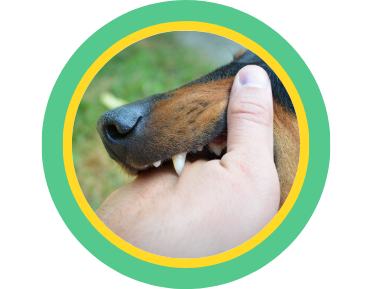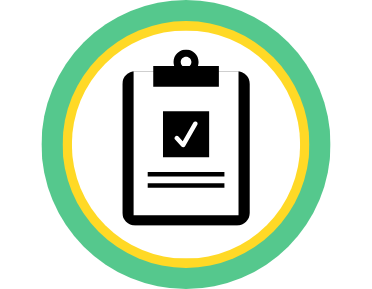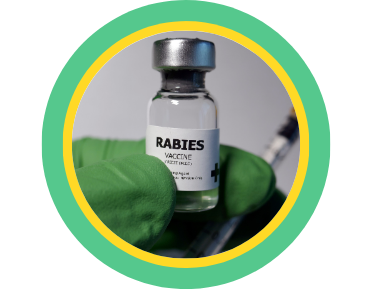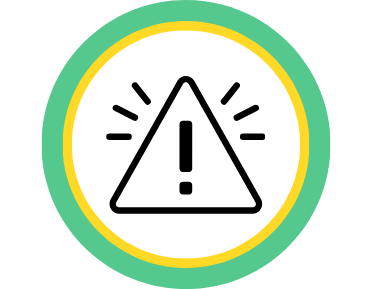Animal Bite & Quarantine Procedures
Northern Nevada Public Health (NNPH) is the designated rabies control authority in Washoe County. In April 2015, an Interlocal Agreement between NNPH and Washoe County Regional Animal Services (WCRAS) designated WCRAS to enforce local codes governing the quarantine and management of biting animals.
Rabies is a deadly viral disease that affects the central nervous system of mammals. Animal bites are a primary route of transmission. Washoe County Regional Animal Services (WCRAS) enforces the quarantine and management of biting animals to control rabies spread in our community.


Bite Reporting
If you are bitten by a dog, cat, ferret or high- risk wild animal (including but not limited to skunk, fox, bat, coyote, or raccoon), and the bite breaks the skin, it's crucial to act immediately:
- Clean the Wound: Wash the bite thoroughly with soap and water.
- Seek Medical Attention: Consult a healthcare professional for proper care and rabies exposure evaluation.
- Follow Instructions: Comply with guidance from Northern Nevada Public Health (NNPH) and WCRAS.
- Medical Facility Reporting: All medical facilities must report animal bites to NNPH at healthehs@nnph.org.
Legal Framework for Quarantine
Under Washoe County Code Chapters 55.610, 55.620, 55.630, and 55.640, dogs, cats, or ferrets that bite or scratch a person breaking the skin must undergo quarantine. Quarantine duration is 10 days, unless euthanasia for rabies testing is required. This helps track potential rabies exposures.
For a comprehensive overview of rabies prevention and control practices, including quarantine guidance, see the National Association of State Public Health Veterinarians (NASPHV) Rabies Compendium.
Quarantine Options
- Veterinary Supervision: Quarantine at a licensed veterinary clinic or shelter at the owner's cost.
- WCRAS Facility: The animal may be impounded and quarantined at the WCRAS facility, at the owner's cost.
- Home Quarantine (If Approved): If conditions are met, quarantine may occur at the owner's home. Conditions include proof of rabies vaccination, secure containment, and no prior violations of running-at-large laws.
Special Considerations
- Nursing Mothers: May be considered for home quarantine.
- Guide or Hearing Dogs: May be waived from quarantine under specific conditions (e.g., the bite occurred during their duties).
- Chronic Medical Needs: May also qualify for specific quarantine arrangements.
- Police or Military K9: May be waived from quarantine under specific conditions (e.g., the bite occurred during their duties).

Rabies Prevention
Protect your pets from rabies by keeping their vaccinations up to date, supervising them when outside, avoiding wildlife, and reporting stray animals to WCRAS.
What to Do if Your Pet is Bitten by a High-Risk Wild Animal
If your pet is bitten by a high-risk wild animal such as a skunk, coyote, fox, bat, raccoon, or other wild mammal known to carry the rabies virus, contact your veterinarian immediately. Report the incident to WCRAS at 775-322-3647 (DOGS).

What Happens if Your Pet is Unvaccinated?
If your unvaccinated dog, cat, or ferret is bitten by or comes into contact with a high-risk wild animal such as a raccoon, bat, skunk, or fox, the consequences can be severe. You may be required to choose between two difficult options:
- Euthanasia: Due to the high risk of rabies transmission, your pet may need to be humanely euthanized to prevent the spread of the disease.
- Strict Quarantine: Alternatively, your pet must complete a strict 4 month (Cats & Dogs) or 6 month (Ferrets) quarantine under public health supervision. Strict quarantine in this context refers to confinement in an enclosure that precludes direct contact with people and other animals. Pets entering into strict quarantine should receive a rabies vaccination upon entry into quarantine or as soon as possible. It is recommended that the period from exposure to vaccination not exceed 96 hours.
These outcomes are heartbreaking—but entirely preventable. Keeping your pet’s rabies vaccination up to date is the most effective way to protect them. In Washoe County, rabies vaccination is required by law for all dogs, cats, and ferrets over 3 months of age.

Quarantine Fees
Owners are responsible for all quarantine-related costs, including veterinary care. For more details, please refer to our WCRAS Fee Schedule.
High-Risk Animals
It is illegal to harbor high-risk animals such as bats, skunks, coyotes, raccoons or other wild mammals known to carry the rabies virus. These animals pose a significant risk for rabies transmission. Avoid contact with them and exercise caution.

